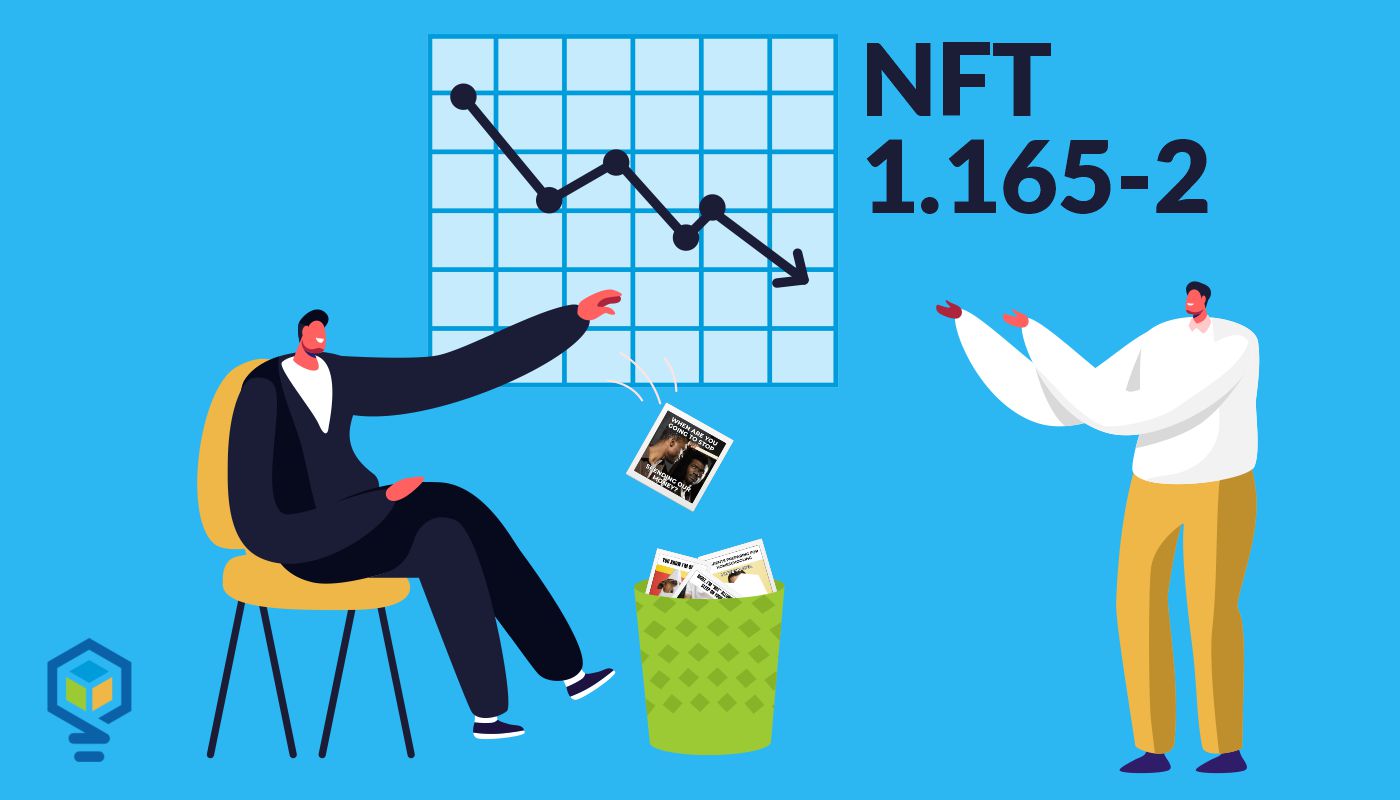CURRENT EDITION

This Is The Only Other Year-End Tax Tip Guide You Need
So as I did last year, I have reviewed a multitude of year-end tax tips articles. One of them is a real standout that you should be sure to check out. If you missed it, you should definitely roll back to the November 15 edition and go over Dominique Molina’s piece, which focuses on what you need to do sooner rather than later in response to OBBBA. It provides more detailed, relevant, actionable advice that you won’t see anywhere else than any of the multitude of pieces I have reviewed. As for the rest, I will give you a basic rundown of what I call the SOSO (same old, same old) and a few suggestions that stand out as different that I will get into a little more along with some thoughts of my own.
READ MORECOVID-19 Benefits: Taxable or Tax-Free?
Federal, state, and local governments, as well as private organizations, have collectively given trillions of dollars in financial support to individuals and businesses during the pandemic through a maze of government and private programs. These benefits will help taxpayers to a greater extent if they are tax-free, but are they? In some cases, we have a definite answer. For many, it is the classic tax law answer: “It depends.” We’ll review the general tax law rules applicable to deciding, then show three ways you can use the tax law to exclude these benefits from a taxpayer’s income.
Read MoreNo One Wants to Pay SE Taxes on Royalties
Most of the Tax Code is “gray.” No, I don’t mean the color font it is written in. Unlike a lot of rules, the Tax Code is difficult to judge what is right and wrong. Perhaps it has to be written this way because to try and define every possible money situation is unfeasible. Perhaps, the writers like it this way because as we’ve said here many times at Think Outside the Tax Box, the gray area provides opportunity for tax savings. Take for example the official Tax Code definition of taxable income. Rather than affirmatively define it, the authors chose to negatively define it. Generally, an amount is part of taxable income unless the law specifically exempts it. Certain types of income get taxed twice. If, for example, you are subject to net investment income tax, you’ll not only pay income or capital gains tax, but an additional tax, as well. The same is true for royalty income. In some instances, it is necessary to pay income tax and self-employment tax on royalty checks you receive. To take advantage of breaks we must examine what loopholes or gray areas exist for royalties, and more importantly, how can you shield it from as much tax as possible. Continue reading to learn how.
Read MoreCharlie Sheen’s Income Tax Woes – Things Are Looking Better
When it comes to celebrity gossip, Charlie Sheen, who I mainly remember as the star of Two and A Half Men, is in a class by himself. You could, for example, look up the Charlie Sheen Effect, if that sort of thing interests you. At any rate, given all his other issues, it is not shocking that he has tax troubles. The IRS has been trying to collect from him for the years 2015, 2017 and 2018. He recently got some good news from the Tax Court and there may be some lessons worth learning from his case. Based on the public record, we don’t know how much the IRS is trying to get from Charlie Sheen. It is reasonable to infer that it is considerably more than the $3.1 million offer in compromise that the CPA and United States Tax Court Practitioner Steven Jager negotiated for Sheen. We also don’t know whether any of what the IRS is looking for is the result of an audit or whether it is entirely the result of Mr. Sheen filing without paying. Continue reading to learn how to negotiate your tax debt like a celebrity.
Read MoreHow to Earn $1 Million in Two Years Tax-Free Using Real Estate
No doubt you’re familiar with taxes arising from the sale of real estate. Capital gains tax applies whenever anyone sells an asset for profit. A capital gain is the sale price minus your “adjusted basis.” ● The “basis” starts at the price paid for the property; and then: ● ADD the amount that was put into improving the property and; ● SUBTRACT the amount, if any, that you may have “written off” based on depreciation. ● Short term capital gains (within one year of purchase) are taxed as ordinary income. ● Long term capital gains are taxed at a lower rate. (15 percent if your taxable income is less than $501,600.) You’re probably also familiar with the homeowners’ gain exclusion for the sale of your primary residence. This is the spectacular Section 121 exclusion that allows you to exclude up to $500,000 of profit related to the sale of your home ($250,000 if you are single). But you may not be aware of how to claim this exemption on two homes – and you can do it on nontraditional homes such as boats or motorhomes and even vacation homes. Continue reading to learn how.
Read MoreI Won! Now What? What Is the Tax Price of Success?
Lucky and talented folks win all sorts of prizes and awards. Often, the winnings have nothing to do with the winner’s business or profession, but sometimes there’s a professional or business connection. You might view your career arcs as a series of applications, interviews, hirings, promotions with one or multiple employers. But some career paths – musicians (both instrumental and vocal), songwriters, and composers come to mind – involve frequent auditions with a healthy dose of competition. The renown and visibility afforded to competition winners often open doors to career advancement – more and better engagements, management contracts, and media/recording opportunities. Competition prizes and awards are taxable. But these winnings might also be subject to self-employment tax that can be up to 15.3 percent on the taxable amount. While most professional musicians are in the business of being musicians, very few consider themselves in the business of being competition participants. The distinction is important and allows for tax planning and savings opportunities. To learn which is better for tax planning, keep reading.
Read MoreDon’t Let Estate Taxes Force Your Family Business into Liquidation
My mom knew she was going to die. And she knew it would be sooner rather than later. Unfortunately, it was much sooner than she expected. She had time to put her personal affairs in order but ran out of time for figuring out succession planning for her business. Transitioning her sole-shareholder S-corporation shares over to me upon her death should have been straightforward. It wasn’t. But that’s a subject for another article. Transitioning a family business upon the death of an owner or a significant stakeholder (partner or shareholder) is never easy. Having to grapple with how to pay estate taxes on a closely held business can add complexity and stress to an already fraught process. With proper planning, however, family and other closely held businesses can avoid having to liquidate assets or sell shares or partnership interests to pay estate taxes. Insurance arrangements, operating agreements that include buy-sell provisions, and gifting strategies can all help to ensure a family business remains in the family and can pay any associated estate taxes. But what happens in the absence of proper planning? What happens when beneficiaries inherit a business they would like to keep family owned or closely held, but which is not liquid enough to pay the associated estate taxes within the required nine months? IRC Section 6166 can come to the rescue. Continue reading to learn more.
Read MoreLast-minute Tax Fix for PTET Businesses That Missed the 12/31 Deadline
Question: My client is just now paying the PTET for California with a timely filed election. Can they deduct the tax payment if they are an accrual basis taxpayer? Answer: Based on face value, unfortunately, the answer is no. Both cash and accrual basis passthrough entities would need to pay the tax by 12/31/21 (assuming calendar year-end) to get the deduction on the 2021 tax return. This answer is based on IRS Notice 2020-75, stating that an entity could take a deduction in the year paid. While the guidance did not specify cash or accrual in the definition, unless the IRS comes out with any other guidance stating otherwise, it is a federal deduction so it works the same as accrued state taxes, which the taxpayer must pay by the end of the tax year to deduct the amount following the economic performance rules. However, what if your client is an accrual basis taxpayer? While Notice 2020-75 does not specifically distinguish or reference method of accounting, there may be a way to fix your 2021 state tax deductions if you missed the 12/31 deadline. Click here to keep reading.
Read MoreTax Strategies for the Worthless NFT
So, you bought an NFT of a unicorn riding a unicycle. That sounds nifty. Turns out, though, even though you paid $500 for it with the expectation of a tidy profit, no one actually wants to buy it from you. It’s now so worthless you can’t even give it away. Is there a way to at least deduct the loss and save a bit in tax? Let’s find out.
Read MoreNOT A MEMBER YET?

SUBSCRIBE TO GET ALL OF OUR
GREAT ARTICLES AND RESOURCES!
CURRENT EDITION

This Is The Only Other Year-End Tax Tip Guide You Need
So as I did last year, I have reviewed a multitude of year-end tax tips articles. One of them is a real standout that you should be sure to check out. If you missed it, you should definitely roll back to the November 15 edition and go over Dominique Molina’s piece, which focuses on what you need to do sooner rather than later in response to OBBBA. It provides more detailed, relevant, actionable advice that you won’t see anywhere else than any of the multitude of pieces I have reviewed. As for the rest, I will give you a basic rundown of what I call the SOSO (same old, same old) and a few suggestions that stand out as different that I will get into a little more along with some thoughts of my own.

The Corporate Vault: How to Use a C Corporation to Stockpile Cash for the Future
When most people think about saving for the future, their minds jump to retirement accounts—401(k)s, IRAs, maybe even defined benefit plans. But business owners have another option that often goes overlooked: using a C corporation as a strategic savings vehicle. By leveraging the flat 21% corporate tax rate, smart income shifting, and careful timing of distributions, business owners can “stockpile” cash inside a corporation, building wealth for future use without the red tape of traditional retirement plans. Want to see how top tax strategists legally use C corporations as private retirement vaults while avoiding double taxation and IRS scrutiny? Continue reading to learn the blueprint.

When TikTok Tax Hacks Backfire: Helping Clients Misled by Social Media Scams
Jessica, a self-employed consultant, was thrilled when she found a viral TikTok video promising a “little-known” tax trick. The video claimed she could get a huge refund by claiming a special Fuel Tax Credit and even writing off her family’s beach vacation as a business expense. Following the advice, Jessica filed an amended tax return and waited eagerly for a windfall. A few months later, instead of a refund check, Jessica received a stern IRS notice. Her so-called credits were disallowed, her refund was denied, and she now faced penalties. Jessica isn’t alone. Every tax season, well-intentioned taxpayers get lured by false tax advice on social media, only to end up in trouble. As tax professionals, we often meet panicked clients like Jessica who need our help to untangle the mess.









